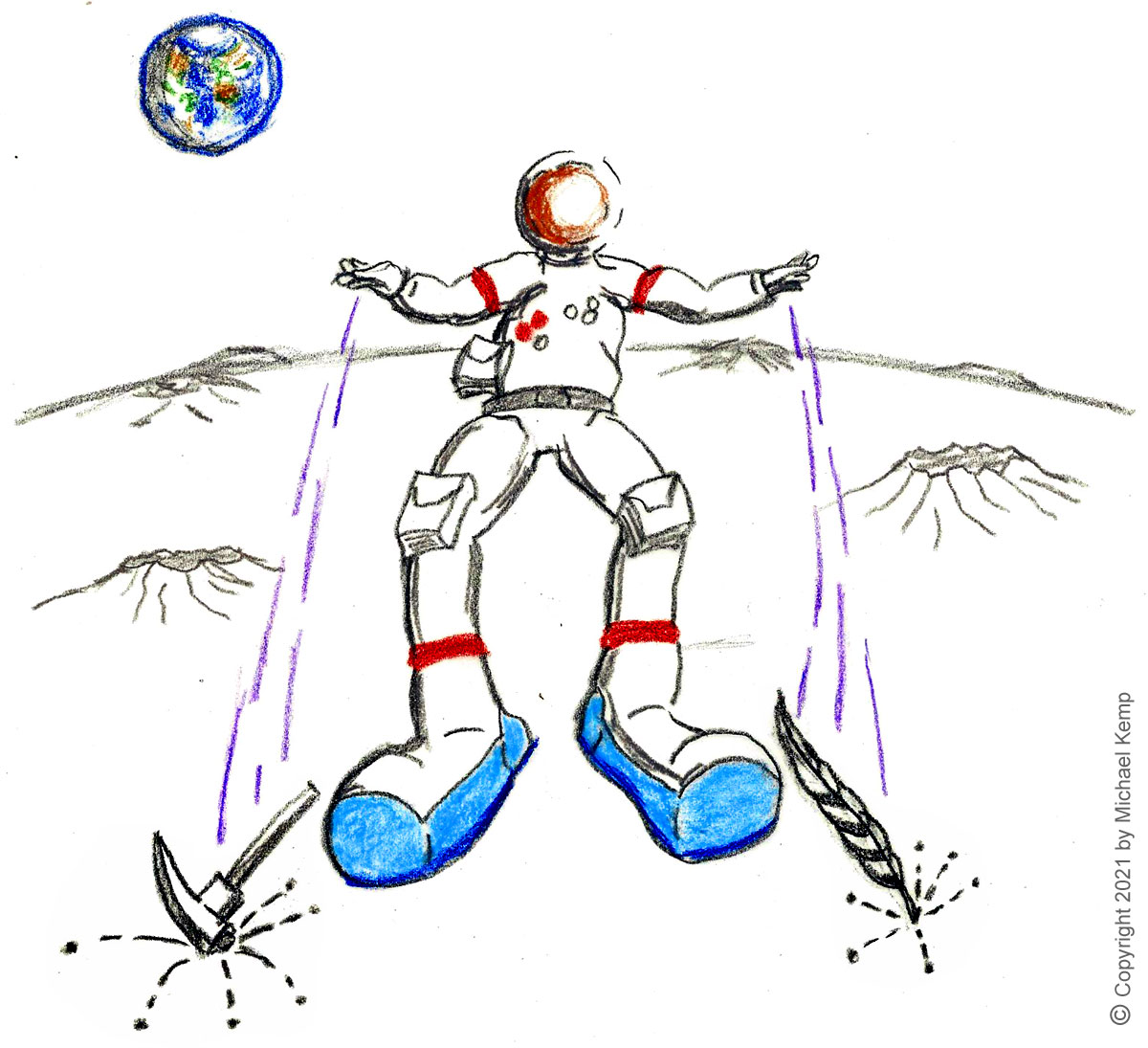How does gravity actually act?
Back in ancient Greece, Aristotle said that the speed of a falling object depends on how heavy it is. Twice as heavy? It’s going to fall twice as fast.
Well, that’s just common sense. A hammer falls faster than a feather.
Aristotle also said that when you drop an object it falls at a steady speed. It doesn’t accelerate.
Galileo realized that it ain’t necessarily so. The feather is being slowed down by air friction. If you dropped a couple of balls of different weights from a great height (let’s say the leaning tower of Pisa, in Galileo’s old hometown) they would fall at the same acceleration and hit the ground together. By using balls rather than feathers, Galileo pretty much eliminated the air friction problem.
Just to drive the point home, in 1971, while hopping around on the Moon, astronaut David Scott filmed himself dropping a feather and a hammer. Since the Moon is in a vacuum, it really eliminates any air friction. Sure enough! The feather and the hammer hit the lunar ground at the same time!
For the video version, check out this link:


Leave a Reply